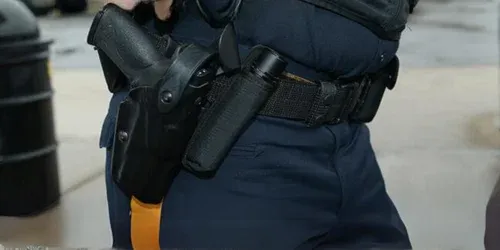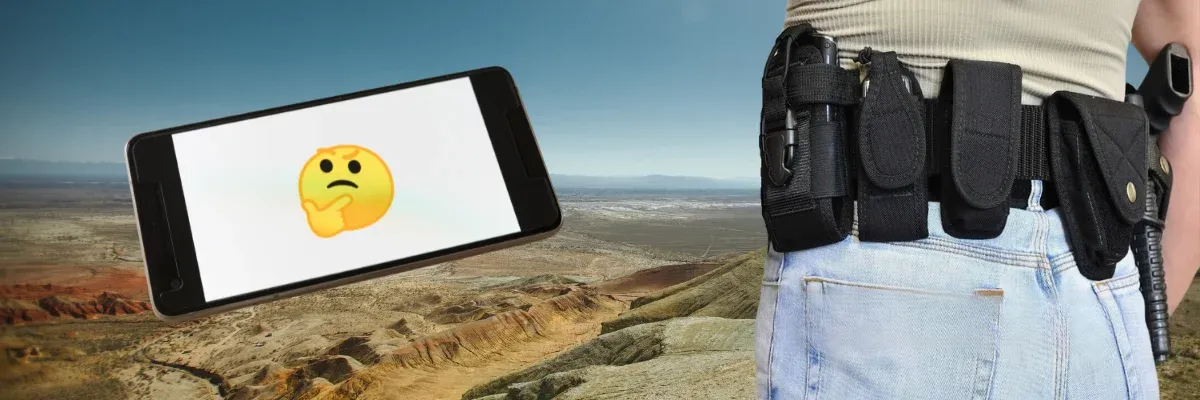Duty belts, often seen strapped around the waists of law enforcement officers, are designed to carry the essential tools of the trade. But what about civilians? Is it appropriate or even legal for a non-officer to don a duty belt? This article will delve into the nuances of civilians wearing duty belts, exploring the practicality, legality, and social implications.
Key Takeaways:
- Understanding the legal and social considerations of civilians wearing duty belts.
- Exploring the practical uses of duty belts for non-law enforcement individuals.
- Identifying alternatives to duty belts for everyday carry needs.

What is a Duty Belt?
A duty belt, also known as a police duty belt, is a heavy-duty belt typically made of nylon or leather, designed to hold equipment such as handcuffs, radios, batons, and firearms. These belts are an essential part of a law enforcement officer's uniform, providing easy access to tools that may be necessary in critical situations.
Can Civilians Legally Wear Duty Belts?
Legally, there is no federal law prohibiting civilians from wearing duty belts. However, it's crucial to be aware of state and local regulations regarding the carrying of certain items typically associated with law enforcement, such as firearms or batons. Civilians must ensure they are in compliance with all laws when equipping their belts.
The Practicality of Duty Belts for Civilians
While the practicality of a heavy duty belt for a civilian may not be immediately apparent, there are scenarios where such a belt could be useful. Individuals involved in certain professions or hobbies, such as security personnel, private investigators, or outdoor enthusiasts, may find the organizational and carrying capacity of tactical belts beneficial.
Social Implications and Perception
Wearing a duty belt as a civilian can lead to misunderstandings. It's important to consider how others may perceive you, as it could be mistaken for impersonating an officer, which is illegal. Civilians should be mindful of the context in which they wear a duty belt and the message it may convey.
Alternatives to Duty Belts
For those looking for the utility without the association with law enforcement, alternatives like battle belts or leather gun belts designed for civilian use might be a better fit. These alternatives provide similar functionality but are styled differently to avoid confusion.
Everyday Carry for Civilians
Everyday carry (EDC) is a concept that refers to items one carries on a daily basis for practicality and preparedness. Civilians can adopt EDC principles without a full duty belt, using items like pocket organizers or smaller tactical belts to keep their essentials accessible.
Customizing Your Belt
If a civilian decides to use a duty belt, customization is key. It's possible to equip a belt with non-tactical items like multi-tools, flashlights, or medical kits, which can be useful in everyday situations or emergencies without giving off a law enforcement vibe.
Legal Considerations for Carrying Gear
When customizing a duty belt, civilians must be aware of the legalities surrounding the carrying of certain gear. For instance, carrying a concealed weapon requires a permit in most states, and there are restrictions on items like lock-picking tools or defense sprays.
Training and Responsibility
Civilians who choose to carry gear typically associated with law enforcement, such as a heavy duty belt, should seek proper training. This ensures that they can use the equipment responsibly and effectively, should the need arise.
Community and Cultural Context
The acceptability of wearing a duty belt can vary greatly depending on the community and cultural context. In some areas, it may be more commonplace and accepted, while in others, it could be seen as provocative or suspicious.

Conclusion
While there are no overarching laws preventing civilians from wearing duty belts, it's essential to consider the practicality, legality, and social implications before strapping one on. Civilians should ensure they are not breaking any laws with the gear they carry and should be prepared to explain their choice if questioned.

FAQs
Is it illegal for a civilian to wear a duty belt?
No, it is not illegal for a civilian to wear a duty belt. However, civilians must comply with all laws regarding the carrying of specific items on the belt.
Can wearing a duty belt be mistaken for impersonating a police officer?
Yes, wearing a duty belt, especially if it includes items typically used by law enforcement, can be mistaken for impersonating an officer, which is a crime. Civilians should be cautious and clear about their intentions when wearing such gear.
What are some alternatives to duty belts for civilians?
Alternatives include battle belts, leather gun belts, and smaller tactical belts designed for civilian use. These provide similar organizational benefits without the direct association with law enforcement.
Related articles:











